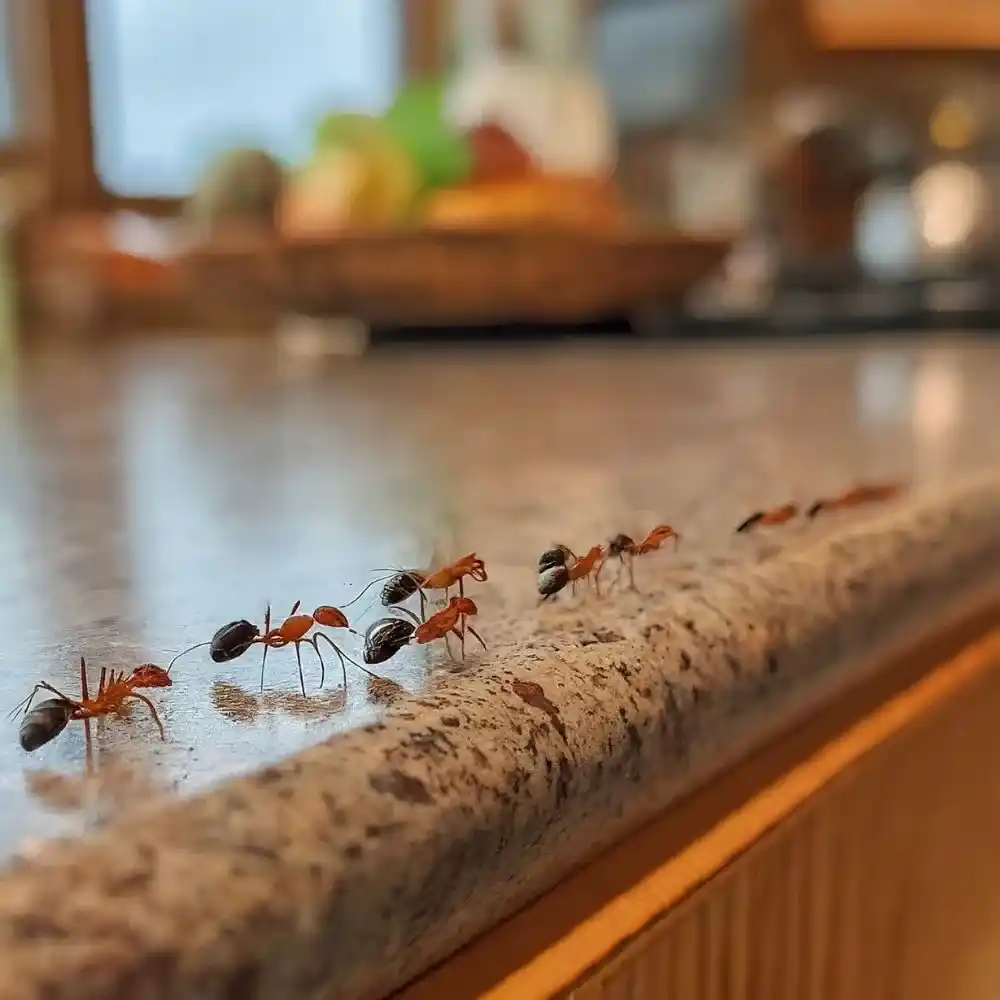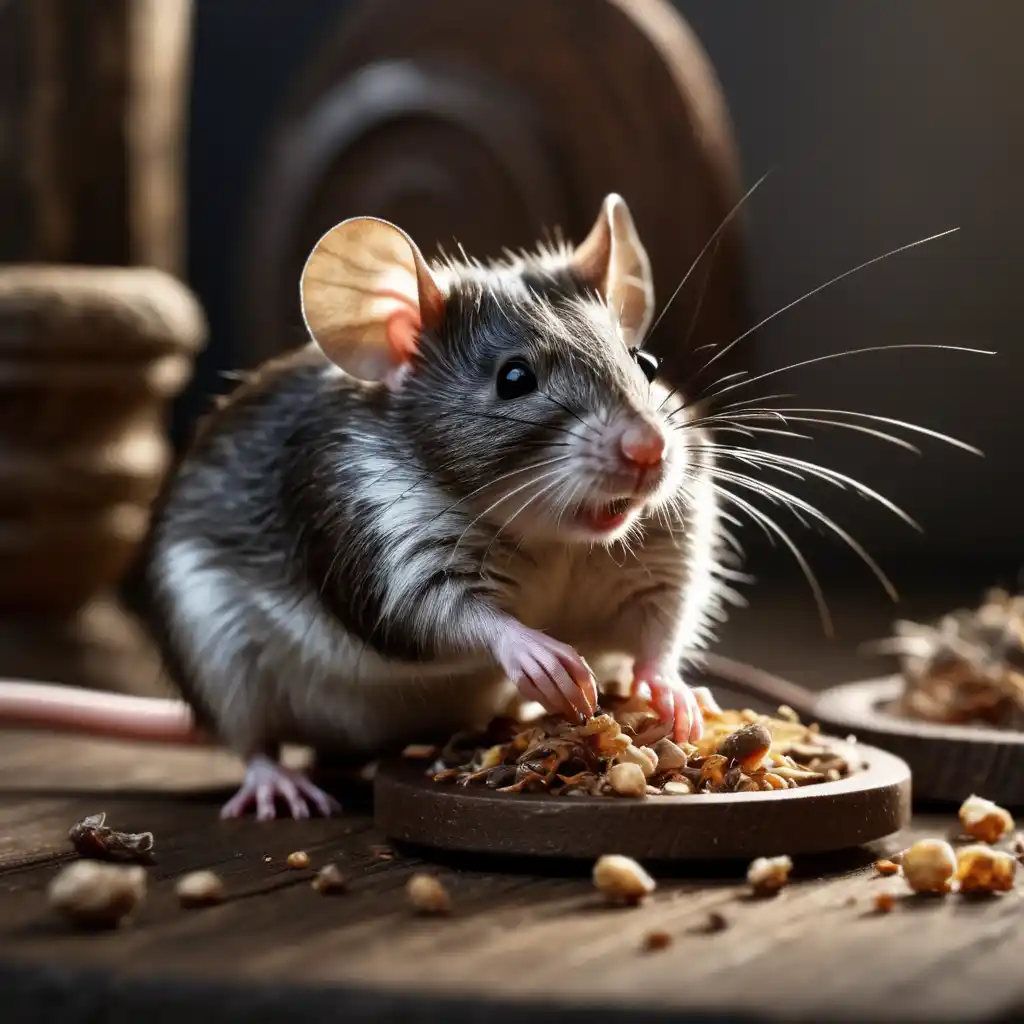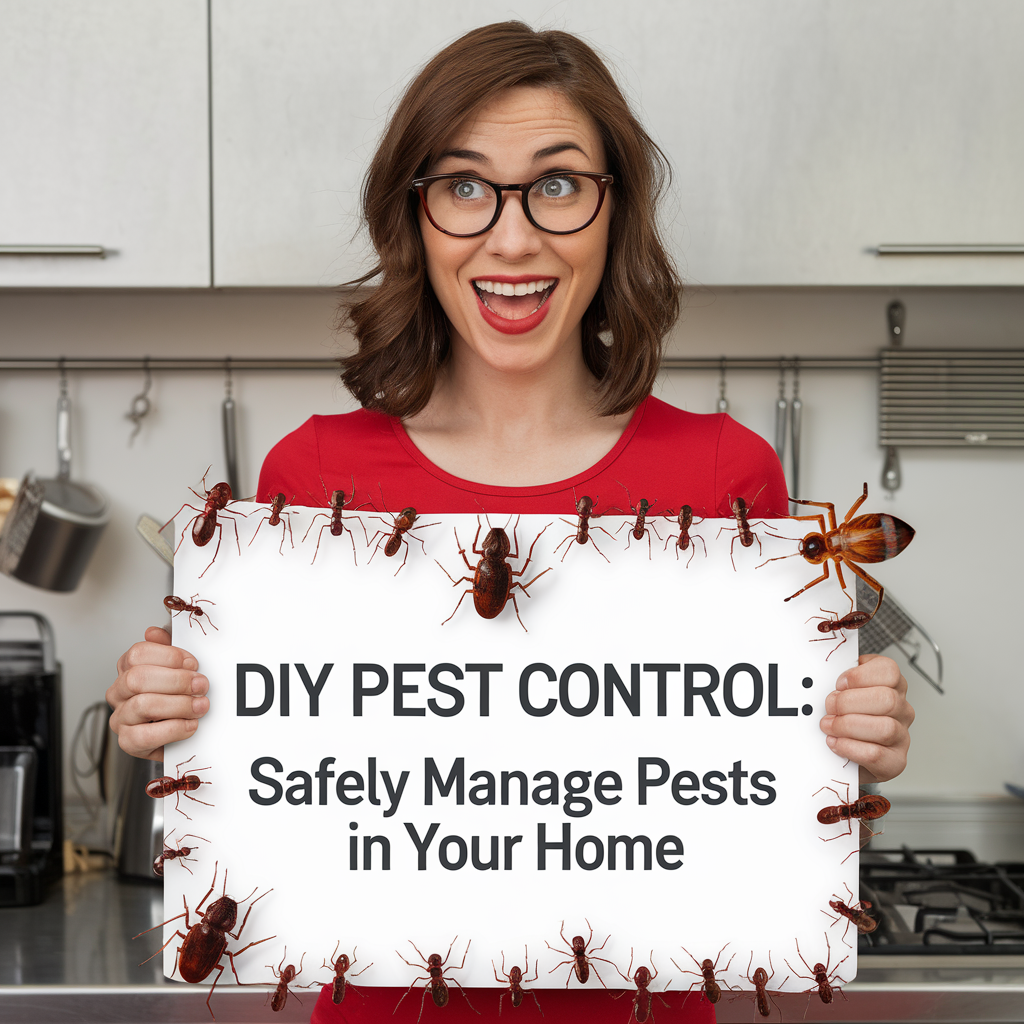DIY pest control is a crucial aspect of keeping a clean and secure home environment. For instance, whether you’re dealing with ants, rodents, termites, or spiders, pests can cause significant damage and even pose health risks. Moreover, hiring a professional exterminator can be costly; however, the good news is that many pest issues can be effectively managed with DIY solutions. In this guide, we will explore various DIY pest control methods that you can implement not only to manage pests effectively but also to ensure a safe living space for you and your family.
Why Diy Pest Control?
Pest invasions can quickly escalate, leading to damage to your property and potential health risksDIY pest control offers advantages over hiring professionals.:
Cost Savings
DIY solutions are often much cheaper professional services.
Immediate Action
Address the issue immediately.
Diy Pest Control Options
Many DIY pest control methods use natural, non-toxic ingredients, which are safer for your family and pets.
Now, let’s jump into some effective DIY pest control strategies for common household pests.
DIY Pest Control and Common Household Pests
Ants

Ants are one of the most common pests found in homes. They are attracted to food and water, making kitchens a prime target.
Identifying the Ant Problem
Ants travel in lines, often leading from a food source back to their colony. To manage an ant infestation, it’s important to find out where they are entering and what is attracting them.
DIY Pest Control Methods : Ant
For more tips on ant control, check out this Ant Control guide.
It offers effective strategies to keep ants out of your home!
- Vinegar and Water Solution
Mix equal parts vinegar and water in a spray bottle and apply it directly to ant trails. The vinegar disrupts their scent trails, making it harder for them to navigate. - Cinnamon
Sprinkle cinnamon along baseboards or wherever ants are entering. Cinnamon disrupts their pathways and prevents them from entering. - Borax and Sugar Trap
Create a mixture of borax and sugar. The sugar attracts the ants, while the borax kills them by interfering with their digestive systems. Place the mixture in areas where you have seen ants.
Rodents (Mice and Rats): Diy Pest Control
Rodents can cause significant damage to your home and spread diseases. Common signs of a rodent problem include droppings, gnawed wires, and holes in food packaging.

Preventing Rodent Infestations
Rodents enter homes in search of food, water, and shelter. Prevention is key to keeping them out.
DIY Pest Control : Rodent Control Methods
- Seal Entry Points
Inspect your home for holes or gaps where rodents could enter, particularly around doors, windows, and plumbing. Use steel wool or caulk to seal these entry points. - Traps
Traditional snap traps or humane live traps can be effective. Place traps along walls where rodents are most active. Bait traps with peanut butter for maximum effectiveness. - Peppermint Oil
Rodents dislike the strong smell of peppermint. Soak cotton balls in peppermint oil and place them near areas where rodents are likely to enter, such as windowsills and corners.
Diy Pest Control :Termites
Termites can cause extensive structural damage to your home. Early detection and prevention are crucial.
Spotting a Termite Infestation
Look for signs such as mud tubes, discarded wings, and damaged wood around your home.
DIY Pest Control Methods
- Cardboard Trap
Termites are attracted to cellulose, which is found in cardboard. Wet a few pieces of cardboard and stack them near areas where termites are active. Once termites infest the cardboard, you can remove and burn it. - Orange Oil
Orange oil is an eco-friendly, non-toxic option for treating localized termite infestations. Apply it directly to termite galleries. - Boric Acid
Boric acid is a natural pesticide that can kill termites. Create a boric acid paste and apply it to areas where termites are active, such as wooden surfaces and crevices.
Spiders
Most household spiders are harmless, but their presence can be unsettling.
Preventing Spider Infestations
Spiders enter homes seeking shelter and food. To prevent them from settling in, it’s important to keep your home clean and clutter-free.
DIY Pest Control Methods
- Essential Oils
Spiders dislike the strong smell of essential oils such as eucalyptus, tea tree, and lavender. Therefore, mix a few drops with water in a spray bottle and then apply it around windows, doors, and other entry points. - Vacuuming
Regular vacuuming of corners, ceilings, and under furniture helps remove spiders and their webs. - Diatomaceous Earth
Sprinkle diatomaceous earth around areas where spiders are seen. This natural powder dries out and kills spiders when they come into contact with it.
Diy Pest Control Tips for Long-Term Prevention
Effective pest control goes beyond simply treating the issue. To prevent future infestations, you need to make your home less attractive to pests. Here are some long-term prevention tips:
Regular Home Maintenance
Fix Leaks
Many pests are attracted to moisture, so be sure to fix any plumbing leaks in your home.
Clean Gutters
Standing water in clogged gutters can attract mosquitoes and other insects.
Seal Cracks and Gaps
Inspect your home regularly for potential entry points and seal them up.
Proper Food Storage
Pests are always on the lookout for easy food sources. To prevent them from feeding in your home:
Storage Tips
- Store food in airtight containers.
- Clean up crumbs and spills immediately.
- Don’t leave pet food out overnight.
Regular Cleaning
Keeping your home clean is one of the most effective ways to prevent pests.
Cleaning Habits
- Vacuum frequently.
- Clean behind appliances.
- Declutter areas like basements and attics where pests may hide.
When to Call a Professional
While DIY pest control is effective for many common household pests, in some cases, professional help may be needed especially when dealing with larger infestations.
Large Infestations
If you have a large infestation, such as with termites or rodents, a professional pest control service may be necessary to fully eliminate the problem.
Pests That Pose Health Risks
Certain pests, such as bedbugs or venomous spiders, pose significant health risks. In these cases, it’s best to consult with a professional.
Diy Pest Control Solutions
If you’re concerned about the chemicals used in traditional pest control methods, many eco-friendly options are available. These solutions are safe for your family and pets while still being effective against pests.
Natural Pest Repellents
Cedar Chips
Cedar is a natural deterrent for moths, cockroaches, and termites. Place cedar chips in closets, under sinks, and around the home to keep pests at bay.
Garlic and Onion Spray
Mix garlic and onion in water to create a potent spray for repelling insects like aphids and mosquitoes. Apply it to plants and areas of your home where insects are found.
Beneficial Insects
Encouraging the presence of beneficial insects like ladybugs and praying mantises in your garden can naturally reduce the population of harmful pests without the need for chemicals.
Conclusion
DIY pest control is not only cost-effective but can also be safer for your home, family, and pets. Furthermore, with the right tools, natural products, and a little patience, you can effectively manage and prevent pest infestations on your own. For example, whether you’re dealing with ants, rodents, termites, or spiders, there are various eco-friendly and effective methods to handle pests without needing to call in a professional.
In addition, by following the tips outlined in this guide, you’ll not only gain the knowledge needed to tackle common pest issues but also acquire the tools necessary to keep your home pest-free and maintain a healthy living environment. Ultimately, taking these proactive steps can lead to a more comfortable and safe home for everyone.
FAQs about DIY Pest Contro
Q1: Why should I consider DIY pest control instead of hiring a professional?
A1: DIY pest control is a great option for several reasons. First and foremost, it offers significant cost savings compared to hiring professionals. Moreover, it allows for immediate action, helping you address pest issues as soon as they arise. In addition, many DIY solutions use natural, non-toxic ingredients, making them safer for your family and pets.
Q2: What are some effective DIY methods for controlling ants?
A2: To effectively manage ants, you can use various methods. For instance, a vinegar and water solution can disrupt their scent trails, whereas sprinkling cinnamon along entry points can prevent them from entering. Additionally, another option is a borax and sugar trap, which not only attracts ants but also eliminates them by interfering with their digestion. Moreover, combining these methods can enhance their effectiveness, and in doing so, you can create a more comprehensive approach to ant control.
Q3: How can I prevent and control rodent infestations at home?
A3: Preventing rodent infestations is essential. To begin with, seal any entry points by thoroughly inspecting your home for gaps around doors and windows. In addition, traditional snap traps or humane live traps can be effective for catching rodents. Furthermore, you can also use peppermint oil, as its strong scent not only deters these pests but also creates a more pleasant environment. Ultimately, combining these strategies will enhance your efforts in keeping rodents at bay.
Q4: What signs indicate a termite infestation, and how can I deal with it?
A4: Signs of a termite infestation include mud tubes, discarded wings, and damaged wood. To tackle this issue effectively, you can set up a cardboard trap to attract and eliminate termites. Alternatively, you might consider applying orange oil or a boric acid paste, which can also help treat localized infestations. Additionally, it’s important to regularly inspect your home for these signs, as by doing so, you can address any potential problems before they escalate. Ultimately, combining these methods will enhance your overall pest management strategy.
Q5: Are spiders harmful, and how can I prevent them?
A5:Most household spiders are harmless; however, their presence can be unsettling. Therefore, to prevent spider infestations, it is essential to keep your home clean and clutter-free. In addition, you can utilize essential oils, vacuum regularly, and sprinkle diatomaceous earth in areas where spiders are frequently seen to deter them. Moreover, regularly checking corners and other hidden spaces can enhance your prevention efforts. Ultimately, by adopting these strategies, you can create a more comfortable living environment while minimizing spider encounters.
Q6: What long-term prevention tips can I follow to keep pests away?
A6: For long-term prevention, it’s vital to maintain your home regularly. For example, fix any leaks to avoid attracting pests, and ensure gutters are clean to prevent standing water. Moreover, store food in airtight containers and clean up spills promptly. In conclusion, regular vacuuming and decluttering can also help keep your home pest-free.
Q7: When should I consider calling a professional pest control service?
A7: While DIY methods are effective for many situations, you may need professional help in specific cases. For instance, large infestations of termites or rodents might require expert intervention. Additionally, if pests pose health risks, such as bedbugs or venomous spiders, it’s best to consult a professional.
Q8: What eco-friendly pest control solutions are available?
A8: If you’re concerned about chemicals in traditional pest control methods, consider eco-friendly options. For example, natural repellents, such as cedar chips and garlic and onion spray, can deter various pests. Furthermore, encouraging beneficial insects like ladybugs can naturally reduce harmful pest populations without the need for chemicals.
Q9: How can I ensure the safety of my family and pets while using DIY pest control methods?
A9: To ensure safety while using DIY pest control methods, prioritize natural ingredients that are non-toxic. Additionally, always follow instructions carefully and store any pest control products out of reach of children and pets. By taking these precautions, you can manage pest issues effectively without compromising your family’s health.


